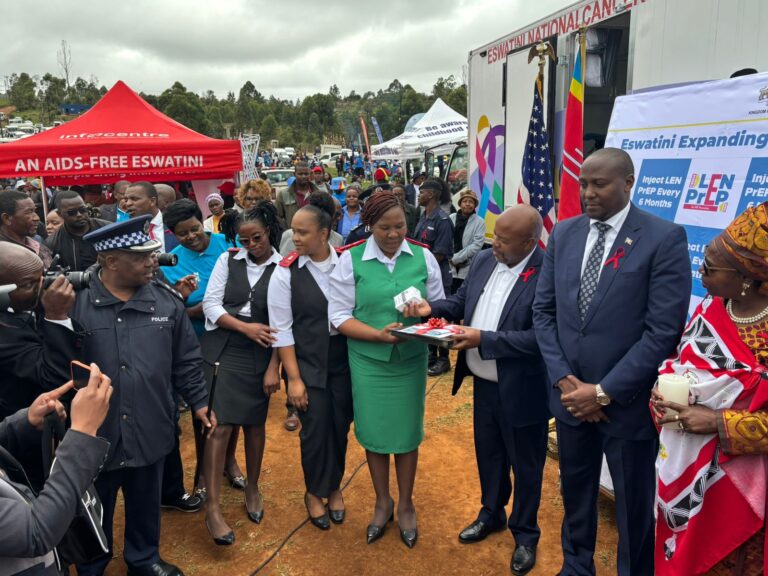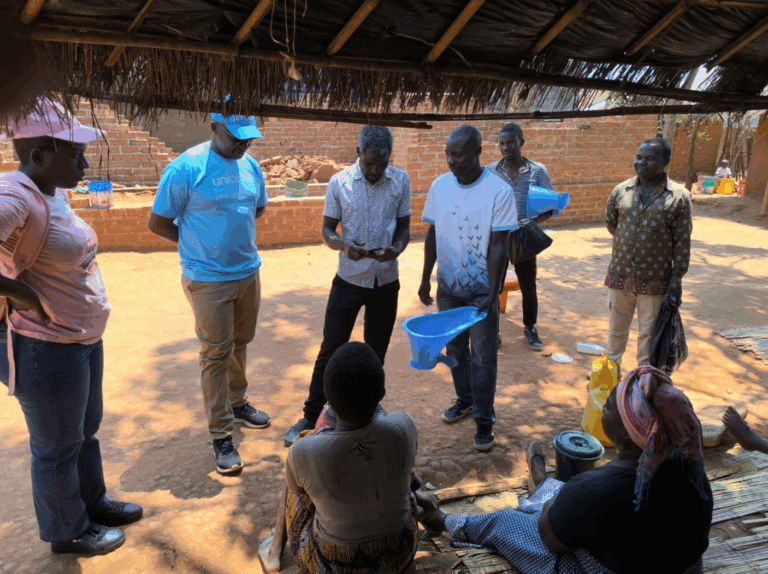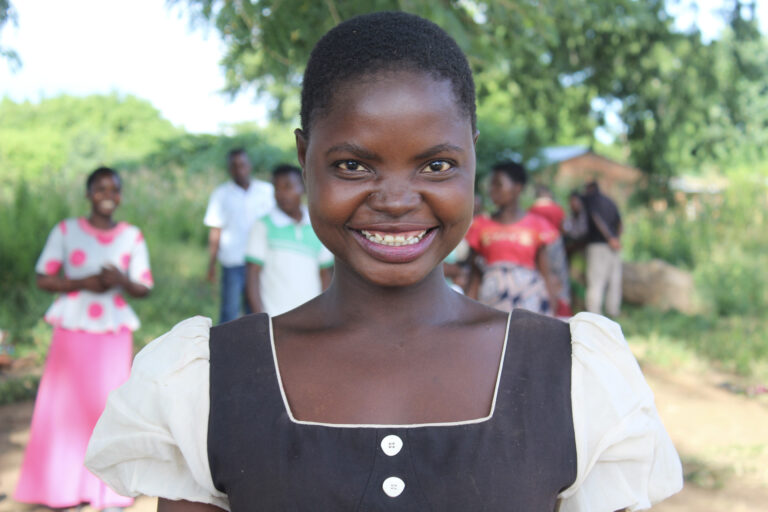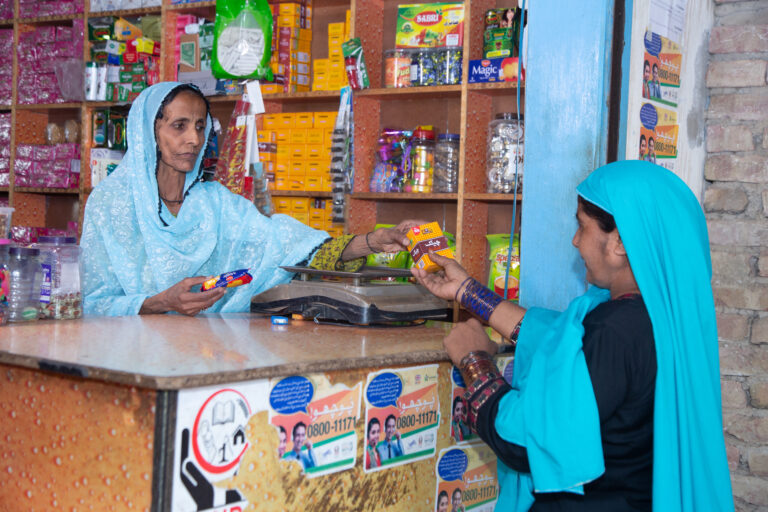By Karin Hatzold, Global Director, and the HIV, Tuberculosis and Viral Hepatitis Team, PSI
Today, more people than ever before know their HIV status, are on treatment, and are virally suppressed. However, critical gaps persist, particularly for adolescent girls and young women, key populations, and marginalized communities, along with insufficient funding to sustain progress in the global HIV response.
Bridging these gaps demands urgent action and innovative strategies, including integrated, differentiated, person-centered self-care approaches tailored to the unique needs of diverse populations.
Self-care can help fill these gaps and overcome disparities by addressing systemic barriers and fostering inclusive, equitable service delivery. Self-care technologies, such as self-testing, telemedicine, and community-based service delivery approaches, reduce reliance on overburdened health systems and support individuals’ access to care discreetly, conveniently, and on their terms. By addressing challenges such as stigma, time, and cost, self-care expands access to services, particularly for those not reached through traditional healthcare settings. Self-care drives progress toward the UNAIDS 95-95-95 goals and Universal Health Coverage.
“Progress toward ending HIV by 2030 is at risk without targeted investments and attention to vulnerable groups. Catalytic solutions like HIV self-testing and multiplex diagnostics demonstrate how self-care innovations can expand choice and access, promote equity, put power in the hands of underserved communities, and build health systems centered on individuals’ needs. To achieve the 2030 HIV goals, we must renew our commitment to these groundbreaking approaches, ensuring no one is left behind.”
Michael Holscher, Senior Vice President and Chief Delivery Officer, PSI
Innovating and Integrating to Increase Access, Efficiency, and Lower Costs
Self-testing is at the forefront of self-care innovation, revolutionizing access to diagnostics. HIV self-testing (HIVST) allows individuals to test at their convenience, creating new pathways to prevention and care services such as pre-exposure prophylaxis (PrEP), post-exposure prophylaxis (PEP), and voluntary medical male circumcision.
Programs like the PSI-led HIV Self-Testing Africa (STAR) Initiative are transforming the HIVST market by generating evidence for scale-up, fostering enabling environments, and paving the way for broader self-care adoption. The co-investment of the Children’s Investment Fund Foundation and the Global Fund in the HIVST matching fund is further accelerating scale-up. As a result, demand for self-test kits surged from 500,000 to more than 30 million, spurring market competition, attracting new manufacturers, lowering costs, and expanding user options.
However, self-testing and other innovations have yet to reach their full potential. National programs still need to fully operationalize HIVST for PrEP and PEP initiation and continuation. Greater efforts are crucial to scale up self-testing and telehealth and to shift to community-based services while linking them with broader health platforms that provide sexual and reproductive health, family planning, antenatal care, and sexually transmitted infections (STI) services. Integrating these services enables individuals to access multiple health services in a single visit, reducing barriers.
Self-testing extends beyond HIV, addressing gaps in care for other conditions. For instance, hepatitis C self-testing helps close critical testing gaps for people who inject drugs and other at-risk groups, but is not yet widely available. In Cameroon, PSI is piloting hepatitis C self-testing to reach key populations and individuals living with HIV. Multiplex diagnostics can further support holistic health outcomes and integrate services by allowing users to test for multiple conditions with a single kit. Examples include dual HIV/syphilis rapid diagnostics or platforms that combine diagnostics for HIV, syphilis, hepatitis B, and hepatitis C, among other combinations.
Differentiated delivery channels — such as pharmacies, rideshare delivery, and community distribution — make these tools more accessible. Initiatives like PSI’s partnership with the Gates Foundation are advancing new molecular point-of-care diagnostic tests for STI screening and detection in private sector clinical settings and pharmacies. These advancements simplify services, optimize resources, and strengthen health systems to deliver client-centered care efficiently and effectively.
Strengthening Public-Private Partnerships for Sustainability
Innovative financing models and strong public-private partnerships sustain self-care innovations. Collaborating with the private sector expands access points, reduces strain on public health systems, and ensures affordability through market-driven solutions.
The PSI-led, USAID-funded PREVENT Activity in Zimbabwe highlights self-care’s potential in the private sector. Pharmacies and private sector clinics serve as trusted access points where individuals can discreetly obtain services such as HIV testing and self-testing, PrEP, PEP, and modern contraceptives.
Community pharmacies play a critical role in expanding self-care’s reach. Expanding pharmacists’ scope to provide injectable PrEP or point-of-care diagnostics for HIV, STIs, and chronic lung disease improves health outcomes by increasing access to essential services in convenient, community-based locations and reducing barriers like travel and wait times. This approach also supports early detection and prevention efforts, enabling individuals to manage their health proactively while easing the burden on traditional healthcare facilities.
Advancing Equity Through Empathy and Person-Centered Self-Care Approaches
Person-centered self-care is a powerful driver of health equity, expanding access and accelerating progress toward the 2030 HIV goals. By investing in self-care and tailoring approaches to meet diverse needs, we can ensure everyone receives the care they deserve.
PSI’s empathy-driven, person-centered approach is transforming HIV service delivery. Peer-led initiatives, such as the PSI Coach Mpilo model in South Africa and community-based differentiated care models, are dismantling barriers like stigma and discrimination while integrating essential mental health services.
By fostering trust and creating safe spaces, PSI works with national programs to embed empathy into healthcare services. This ensures clients feel respected, supported, and valued, resulting in more equitable, effective, and sustainable health outcomes for populations affected by HIV.
A Future Built on Self-Care
Person-centered self-care is more than an approach to healthcare — it is a movement that PSI champions for its ability to increase personal agency, transform health systems, and build a future where health is accessible to all. Now is the time to foster innovation, learn from past lessons, and invest in catalytic funding to drive integrated, differentiated, person-centered self-care approaches.
By embracing this vision, we can end the HIV epidemic and achieve truly person-centered health coverage by 2030, ensuring no one is left behind. This World AIDS Day, let us champion self-care as a cornerstone of the HIV response and a pathway to achieving universal health coverage and epidemic control.



















